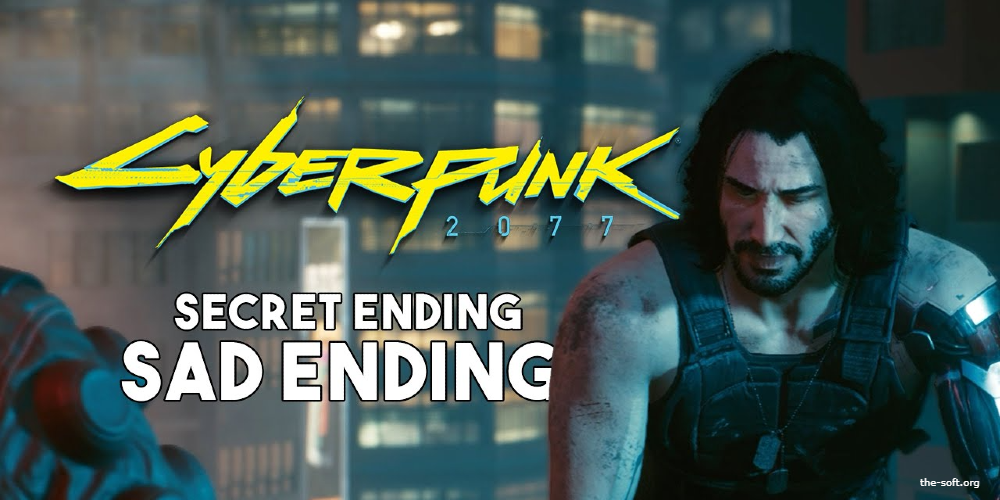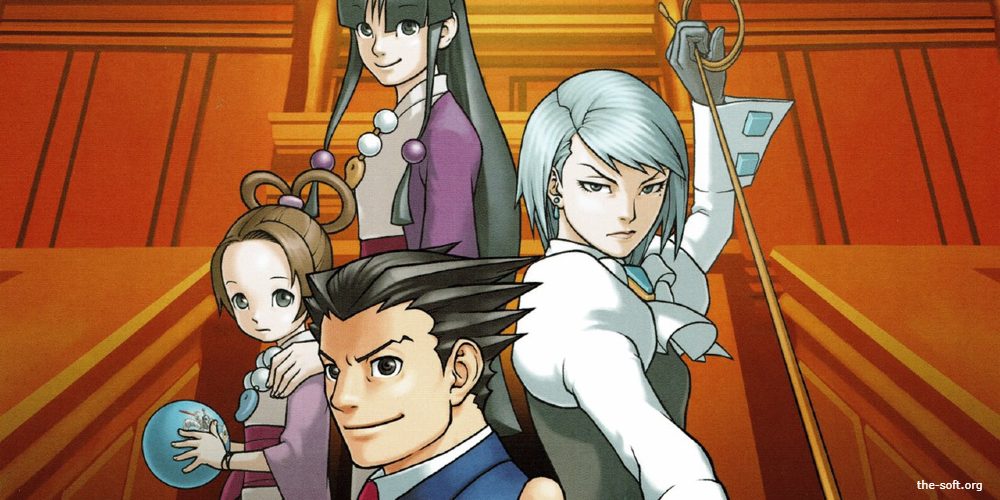Game Over, Indeed: The Top 10 Bad Endings in Video Games
- 2023-05-15 09:00
- 0 Comments

Immersing ourselves in video games often means investing countless hours into plots that weave an intricate tapestry of heroism, mystery, and emotional connections. Ambitious titles dare to defy expectations by delivering multiple routes that force us to face the consequences of our in-game decisions. Some endings evoke triumph and catharsis; others leave us disturbed or heartbroken. Here are the top 10 worst endings in video games that expertly showcase the darker side of interactive storytelling.
1. A Tragic Suicide – Cyberpunk 2077
In the dystopian future of Night City, Cyberpunk 2077 chronicles the journey of protagonist V as they confront conspiracies and corruption while seeking a remedy for their impending doom. Players' choices throughout V's story significantly influence ten distinct endings; one harrowing outcome leaves players broken as V, overcome by desperation and hopelessness, decides to commit suicide – leading to an unforgettable and tragically nihilistic conclusion.
2. Everyone Dies – Heavy Rain
The narrative adventure game Heavy Rain explores a complex murder mystery through the eyes of four protagonists: Ethan Mars, Madison Paige, Norman Jayden, and Scott Shelby. As players reshape each character's fate through their decisions, all can either survive or die by completion – including a devastating ending where no protagonist remains alive to solve the Origami Killer case. As despair reaches its crescendo at this crux point, the game crafts an uncomfortably resonant testament.

3. The Death Of Everyone In The Crew – Mass Effect 2
In Mass Effect 2, Shepherd commands an elite team tasked with saving humanity from a ruthless alien menace. As players navigate the character-rich narrative, they make choices affecting every squadmate's survival, forming emotional bonds throughout the game. The ultimate test lies in the "Suicide Mission," where miscalculations or incomplete preparations lead to disaster: witnessing each crew member's demise during their suicide mission mutates into a chilling loss for players who've miserably lost.
4. Dying To Lavos In The Final Battle – Chrono Trigger
Chrono Trigger, hailed as one of the RPG classics, takes its protagonists on an epic journey through time to save their world from the apocalyptic destruction wrought by Lavos – an extraterrestrial being slowly draining Earth's life force. Numerous endings grace this time-traveling odyssey, enticingly modeled following players' decisions, yet one ending rattles most souls; losing the final showdown against Lavos casts viewers into a bleak vision of Earth devoured – leaving behind a harsh reminder: some battles can't be won.
5. Maya Is Never Found – Phoenix Wright: Justice For All
As a perpetually-plucky defense attorney, Phoenix Wright solves cases and clears his clients' names in Phoenix Wright: Justice For All. However, one particular climactic case entangles Phoenix amidst both devious doppelgängers and ransom demands for his kidnapped assistant, Maya Fey. Failure to masterfully cross-question witnesses or discover crucial evidence results in not only a false suspect conviction but also Maya vanishing forever – a disastrous blow for those invested in Phoenix and Maya's partnership.

6. The Rise Of Chara – Undertale
Undertale captivates gamers with its innovative storytelling approach that intertwines morality and consequences as players venture through the atmospheric Underground – befriending or battling its eccentric inhabitants. Among multiple endings arises a notorious route dubbed the "Genocide Run," in which players mercilessly kill everyone in their path, brutally altering its heartwarming cast of characters into shadows of their former selves and ultimately summoning Chara, a twisted embodiment of the once-human protagonist's destructive desires.
7. The High Chaos Ending – Dishonored
The stealth-action game Dishonored chronicles Corvo Attano's quest for vengeance against those who wronged him and plunged his city into chaos. With powers granted by the supernatural Outsider, Corvo can choose to act with brutal force or careful subterfuge – but make no mistake: such choices possess consequences. Players adhering to lethal tactics unlock "High Chaos" paths leading up to a darker conclusion; ironically, rescuing Emily (the game's innocent empress-in-waiting) isn't exempt from destruction – one last damning blow to an already bleak world.
8. Killing Taro Namatame – Persona 4
Diving into Persona 4's eerie world entangles players in an otherworldly murder mystery peppered with psychological introspection and fascinating characters. When the enigmatic Taro Namatame surfaces as a prime suspect, choosing to exact vengeance upon his results in an inconclusive ending that leaves investigations unsolved and further tragedies unpreventable. Players' encounters illuminate how good intentions may embrace sinister outcomes – ultimately twisting vengeful victory into a persisting loss.

9. Omori Jumping To His Death – Omori
The emotionally charged RPG Omori weaves a tale of grief, guilt, and mental health struggles as it plunges players into the imaginative world of protagonist Sunny and his alter ego, Omori. As they navigate somber realities and dreamlike reveries, players must face uncomfortable truths about themselves and their choices. In one harrowing ending, Omori refuses to reconcile with Sunny, succumbing to his inner darkness and ultimately choosing to end his own life.
10. Ending Up With Citra – Far Cry 3
In Far Cry 3, protagonist Jason Brody faces the violent criminal underworld of a remote island paradise while reuniting with his friends. Throughout this journey of vengeance and survival, Jason may succumb to insanity's siren call – aided by the enigmatic Citra, leader of a local tribe known as the Rakyat. One potential ending sees him willingly embracing their brutal customs by murdering both friends and loved ones alike – a grim reminder that power corrupts.
The allure of these heart-wrenching endings lies in their ability to immerse gamers into a paradoxical sense of desolation that captivates deeper emotions – a masterful balance seldom achieved beyond electronic realms. As inventive narratives present us with awe-inspiring conclusions shaped by our in-game choices, such bad endings unconsciously guide us along pathways that result in an unwaveringly powerful connection between the player and the story.






Leave a comment